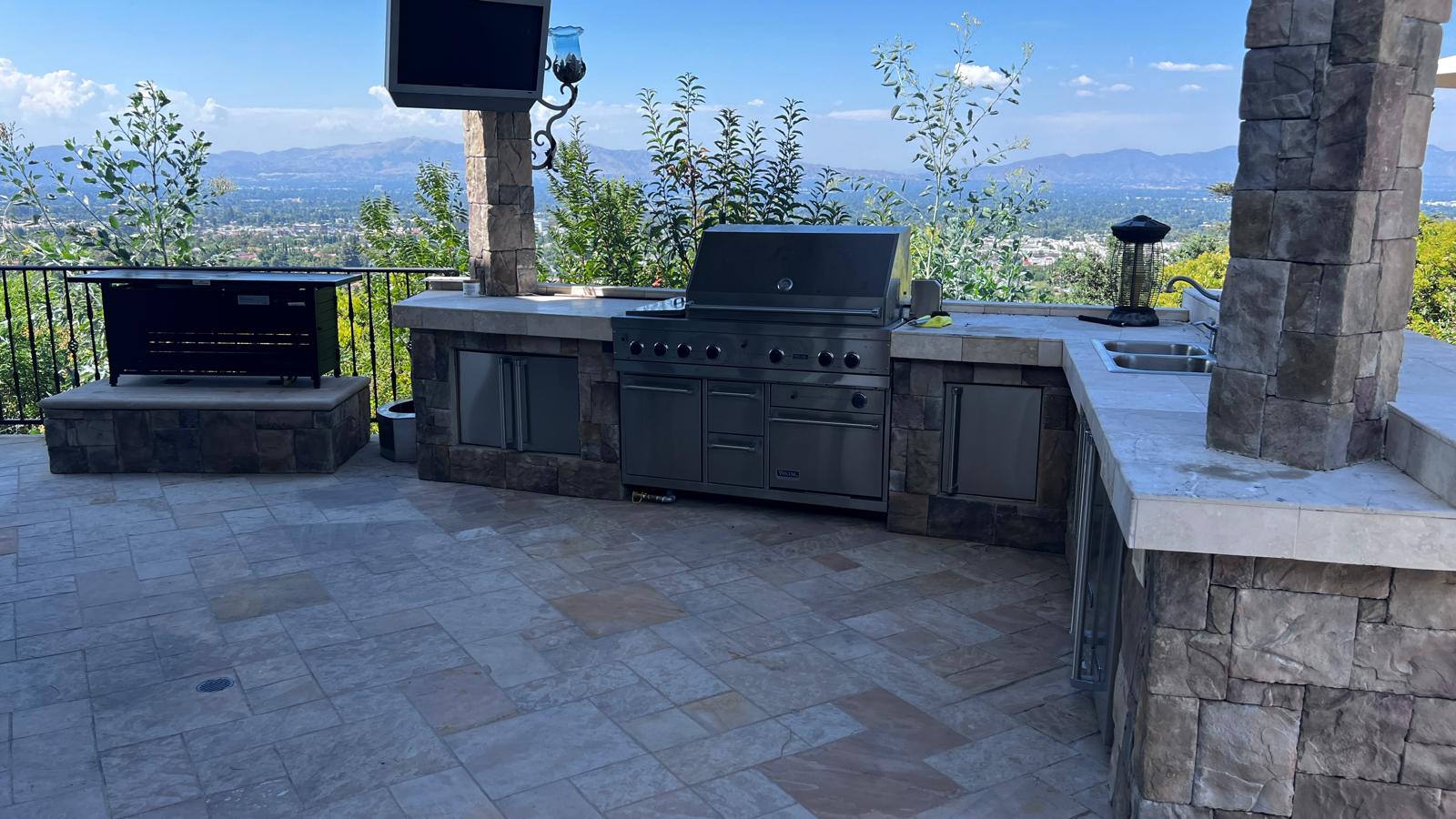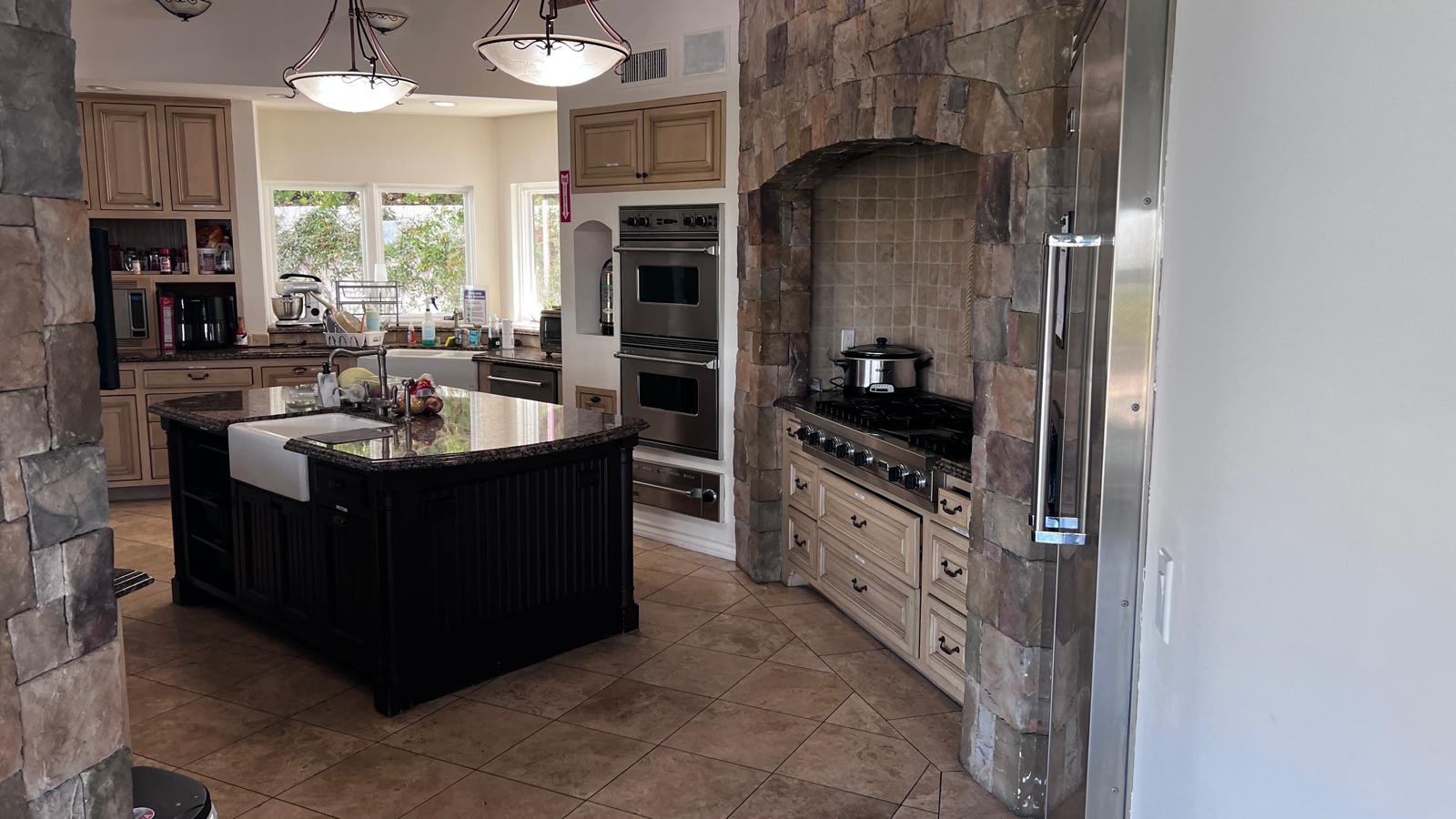When Sarah first walked through the doors of our women’s residential treatment center three years ago, she carried more than just her suitcase. She bore the weight of a decade-long battle with addiction, the shame of multiple failed attempts at recovery, and the fear that she might never reclaim her life. Today, Sarah mentors other women in recovery and has rebuilt relationships with her children. Her transformation exemplifies why specialized care at a women’s residential treatment center can make the difference between another relapse and lasting recovery.
At Grand View Villas Recovery Center, we understand that women face unique challenges in their journey toward sobriety. Addiction affects women differently than men, both biologically and socially. Women often carry additional burdens including trauma history, childcare responsibilities, relationship dynamics, and societal pressures that require specialized attention. Our luxury facility provides medically supervised detox, comprehensive residential treatment, and holistic recovery services designed specifically for women’s needs.
Understanding Women’s Unique Path to Addiction
Women typically begin using substances for different reasons than men. Research consistently shows that women are more likely to use drugs or alcohol to cope with emotional pain, trauma, depression, or anxiety. They often start with prescription medications prescribed for legitimate medical conditions, leading to dependency without recognizing the warning signs.
The progression of addiction in women also follows distinct patterns. Women tend to escalate from first use to addiction more rapidly than men, a phenomenon known as “telescoping.” They experience more severe physical and psychological consequences in shorter timeframes, making early intervention crucial. Additionally, women face greater stigma when seeking treatment, often delaying their decision to get help due to fears about judgment regarding their roles as mothers, partners, or caregivers.
Hormonal fluctuations throughout a woman’s life cycle significantly impact addiction patterns and recovery outcomes. Menstrual cycles, pregnancy, menopause, and hormonal contraceptives all influence how women metabolize substances and experience withdrawal symptoms. These biological factors require specialized medical supervision during detox and ongoing treatment planning.
Why Choose a Women-Only Treatment Environment
The decision to seek treatment at a female-only residential rehab facility offers numerous advantages that directly impact recovery success rates. In a women-only environment, participants can focus entirely on their healing without the distractions and complications that often arise in co-educational settings. Many women have experienced trauma, abuse, or unhealthy relationship patterns that can be triggered by male presence during vulnerable recovery periods.
Women’s substance abuse treatment facilities create safe spaces where participants can address sensitive topics including sexual trauma, domestic violence, eating disorders, and reproductive health issues. These conversations happen more naturally and thoroughly when women feel completely secure in their environment. The absence of romantic distractions allows participants to develop authentic friendships and support networks based on shared experiences rather than complicated interpersonal dynamics.
Group therapy sessions in women-only settings tend to be more productive and emotionally rich. Women typically communicate differently than men, often processing emotions through detailed storytelling and seeking understanding through shared experiences. This communication style thrives in single-gender environments where participants feel understood and validated by peers facing similar challenges.
Comprehensive Treatment Approaches for Women
Our inpatient rehab for women incorporates evidence-based therapies specifically proven effective for female clients. Trauma-informed care forms the foundation of our treatment philosophy, recognizing that the majority of women in recovery have experienced some form of trauma. We utilize specialized approaches including Eye Movement Desensitization and Reprocessing (EMDR), Cognitive Processing Therapy, and somatic therapies that address trauma stored in the body.
Individual therapy sessions focus on the unique psychological factors that contribute to women’s addiction patterns. Our licensed therapists explore topics including perfectionism, people-pleasing behaviors, codependency, and the complex relationships between self-worth and external validation. Women often struggle with guilt and shame related to their addiction’s impact on family relationships, particularly their children. Our therapeutic approach helps process these emotions while developing healthy coping mechanisms.
Group therapy programs address women-specific issues including body image, relationships, parenting concerns, and career challenges. We offer specialized groups for mothers, survivors of domestic violence, and women dealing with eating disorders alongside substance abuse. These focused groups allow participants to connect with others who truly understand their specific struggles and circumstances.
Medication-assisted treatment plays a crucial role in our residential addiction recovery program for women. Our medical team understands how hormonal fluctuations affect medication effectiveness and withdrawal experiences. We carefully monitor medication interactions with birth control, hormone replacement therapy, and other women-specific treatments. Our physicians specialize in treating pregnant women and nursing mothers, ensuring both maternal and fetal safety throughout the recovery process.
Holistic Healing for Mind, Body, and Spirit
Recovery extends far beyond addressing substance use alone. Our holistic approach recognizes that lasting sobriety requires healing the whole person. Women often struggle with perfectionism and unrealistic expectations of themselves, making self-compassion and emotional regulation essential recovery skills.
Nutritional therapy addresses the unique dietary needs of women in recovery. Addiction often leads to severe nutritional deficiencies, and women may struggle with disordered eating patterns that require specialized attention. Our registered dietitians develop personalized meal plans that support physical healing while addressing any underlying eating disorders or unhealthy relationships with food.
Physical wellness programs incorporate activities that many women find enjoyable and sustainable. Yoga classes focus on reconnecting with the body in healthy ways, particularly beneficial for trauma survivors. Dance movement therapy allows emotional expression through physical movement, while nature walks and gardening activities provide grounding experiences that many women find deeply healing.
Creative arts therapies including music, art, and writing workshops offer alternative forms of expression and processing. Many women discover hidden talents and passions during treatment that become important parts of their ongoing recovery. These activities also provide healthy outlets for emotional expression and stress management that continue benefiting them long after leaving residential treatment.

Addressing Co-Occurring Mental Health Conditions
Our women’s mental health and addiction center specializes in treating the complex relationship between substance abuse and mental health disorders. Statistics show that women are more likely than men to have co-occurring mental health conditions alongside their addiction. Depression, anxiety, post-traumatic stress disorder, and eating disorders frequently accompany substance use disorders in women.
Our dual diagnosis treatment approach ensures that both addiction and mental health conditions receive simultaneous attention. Treating only the addiction while ignoring underlying depression or anxiety typically leads to relapse as individuals struggle to cope with untreated psychological symptoms. Our integrated treatment model addresses the root causes of both conditions while developing comprehensive coping strategies.
Specialized programs address specific mental health concerns that commonly affect women in recovery. Our trauma therapy programs utilize cutting-edge treatments including EMDR, cognitive processing therapy, and somatic experiencing techniques. For women struggling with eating disorders alongside addiction, we provide specialized nutritional counseling, body image work, and meal planning support.
Family-Centered Recovery Approach
Addiction profoundly impacts entire families, but women often face unique challenges related to childcare responsibilities and family dynamics. Many mothers delay seeking treatment due to concerns about child custody or care arrangements during their absence. Our rehab for mothers with children includes comprehensive family therapy and support services that strengthen relationships while supporting recovery.
Our family therapy programs help repair damaged relationships and establish healthy communication patterns. Many women struggle with guilt about their addiction’s impact on their children, spouses, or parents. Family therapy sessions provide safe spaces for expressing emotions, making amends, and rebuilding trust through concrete actions rather than just words.
For mothers in treatment, we provide resources including parenting skills workshops, legal consultation regarding custody issues, and connection with community resources for ongoing family support. We understand that successful recovery for mothers requires addressing practical concerns about providing for and protecting their children.
Specialized Programs and Populations
Our Christian residential treatment for women incorporates faith-based elements for those seeking spiritually integrated recovery. Many women find strength and healing through reconnecting with their spiritual beliefs and religious communities. Our chaplaincy services provide individual spiritual counseling, Bible study groups, and meditation practices rooted in Christian traditions.
We also serve women from diverse backgrounds including LGBTQ+ individuals, veterans, healthcare professionals, and other specialized populations. Each group faces unique challenges and stigmas related to their addiction. Our culturally competent staff provides sensitive, affirming care that respects individual identities and circumstances.
Professional women often struggle with addiction while maintaining successful careers, creating additional layers of shame and fear about seeking treatment. Our executive treatment track provides flexible scheduling, enhanced privacy protections, and career counseling to help professional women maintain their livelihoods while prioritizing their recovery.
The Recovery Environment at Grand View Villas
Our luxury residential facility provides a healing environment that promotes dignity, comfort, and focus on recovery. Private and semi-private accommodations ensure personal space for reflection and rest. Common areas encourage community building and peer support while providing comfortable spaces for group activities and social interaction.
The physical environment plays a crucial role in healing from addiction and trauma. Our facility features beautiful outdoor spaces including gardens, walking paths, and quiet areas for meditation or journation. Many women find that connecting with nature supports their emotional healing and provides healthy coping mechanisms they can continue using after leaving treatment.
Amenities support both recovery activities and personal wellness. Fitness facilities encourage physical health and stress management. Libraries and quiet study areas provide space for reflection, reading, and working through therapy assignments. Comfortable meeting spaces support group therapy, family visits, and recreational activities.
Evidence-Based Outcomes and Success Rates
Our drug and alcohol rehab for females demonstrates consistently strong outcomes based on evidence-based treatment approaches. Success rates depend on multiple factors including length of stay, engagement in aftercare services, family support, and individual motivation. However, women who complete our full residential program show significantly higher rates of sustained sobriety compared to those who receive less comprehensive care.
Long-term follow-up studies of our graduates show that women who complete residential treatment demonstrate improved family relationships, better employment outcomes, decreased criminal justice involvement, and overall better quality of life measures. These outcomes reflect not just abstinence from substances but genuine life transformation and personal growth.
Preparing for Life After Treatment
Successful residential treatment preparation for returning to daily life outside the structured treatment environment. Our sober living for women programs provide transitional housing options that bridge the gap between residential treatment and independent living. These structured living environments maintain accountability and peer support while gradually increasing personal freedom and responsibility.
Aftercare planning begins during the initial weeks of residential treatment and continues throughout the entire program. Each woman develops a comprehensive discharge plan addressing housing, employment, ongoing therapy, medical care, and family relationships. These plans include specific strategies for managing triggers, accessing support resources, and maintaining healthy lifestyle changes.
Alumni programs provide ongoing connection and support long after leaving residential treatment. Monthly alumni gatherings, online support groups, and mentorship opportunities help graduates maintain their recovery community and continue growing in their sobriety. Many graduates become mentors for current clients, providing hope and practical guidance based on their own successful recovery experiences.
Insurance and Financial Considerations
Treatment costs vary based on length of stay, specific services required, and insurance coverage details. Most major insurance providers cover residential addiction treatment, including specialized women’s programs. Our admissions team works closely with insurance companies to maximize coverage and minimize out-of-pocket expenses for families.
For those without adequate insurance coverage, we offer payment plans and financial assistance programs. We believe that financial constraints should never prevent someone from accessing life-saving treatment. Our financial counselors work with families to explore all available options including employee assistance programs, state funding, and private financing options.
Taking the First Step Toward Recovery
Reaching out for help requires tremendous courage, particularly for women who often prioritize others’ needs above their own. Many women delay seeking treatment due to concerns about family responsibilities, work obligations, or social judgment. However, addressing addiction actually makes women better mothers, partners, employees, and community members in the long run.
The admission process begins with a confidential phone conversation where our intake specialists gather basic information and answer questions about our programs. Medical assessments determine appropriate detox protocols and identify any co-occurring health conditions requiring special attention. Psychological evaluations help match individuals with appropriate therapy approaches and group placements.
We understand that the decision to enter residential treatment often happens during crisis situations. Our admissions team can facilitate rapid placement when medically necessary, often within 24-48 hours of initial contact. Emergency interventions ensure that women receive immediate medical attention and begin their recovery journey in a safe, supportive environment.
Frequently Asked Questions
What is a residential treatment center for women, and how does it work?
A women’s residential treatment center provides 24-hour supervised care in a facility specifically designed for female clients struggling with addiction and co-occurring mental health conditions. Residents live on-site for 30-90 days while participating in comprehensive therapy programs, medical care, and holistic wellness activities. The residential setting removes environmental triggers while providing intensive treatment that addresses the root causes of addiction.
How much does a women’s residential treatment program cost, and is it covered by insurance?
Costs vary based on length of stay and specific services required, typically ranging from $30,000 to $80,000 for a 30-90 day program. Most major insurance plans cover residential addiction treatment under mental health parity laws. Coverage details depend on your specific policy, but many clients pay only their standard deductible and copayments. Our admissions team provides detailed insurance verification before admission.
What is the typical length of stay in a women’s residential rehab program?
Most women benefit from 60-90 day residential programs, though length of stay depends on individual needs and circumstances. Shorter 30-day programs may be appropriate for those with strong support systems and less severe addiction histories. Extended care options up to six months serve women with complex trauma histories, multiple prior treatment attempts, or severe co-occurring mental health conditions.
What types of therapy and treatment methods are used in a women-only center?
Evidence-based therapies include Cognitive Behavioral Therapy, Dialectical Behavior Therapy, trauma-focused treatments like EMDR, and family therapy. Women-specific programming addresses topics including relationships, parenting, body image, and trauma recovery. Group therapy, individual counseling, medication management, and holistic therapies like yoga and art therapy create comprehensive treatment plans tailored to each woman’s needs.
What is the success rate of residential treatment for women?
Success rates vary based on multiple factors, but women who complete residential treatment show significantly better outcomes than those receiving less intensive care. Studies indicate that 60-80% of women maintain sobriety for at least one year after completing quality residential programs. Success increases dramatically when residential treatment is followed by appropriate aftercare including outpatient therapy, support groups, and sober living arrangements.
Can I bring my phone, laptop, or other personal belongings to the treatment center?
Personal item policies balance therapeutic needs with practical considerations. Phones are typically allowed during designated times with restricted access during therapy hours and evening quiet periods. Laptops may be permitted for work-related needs during later treatment phases. Clothing, books, photos, and comfort items are generally encouraged. Specific policies regarding electronics and personal belongings are reviewed during the admission process.
How is a women’s residential treatment center different from a co-ed facility?
Women-only facilities eliminate romantic distractions and allow focus on recovery-specific issues without gender-related complications. Many women feel more comfortable discussing trauma, relationships, and sensitive topics in single-gender environments. Programming addresses women-specific concerns including reproductive health, parenting challenges, and female-oriented trauma. The therapeutic community develops differently when women can be completely authentic without male presence.
Do you offer specialized programs for specific issues, such as trauma or eating disorders?
Yes, our programming includes specialized tracks for trauma survivors, women with eating disorders, mothers, professional women, and those with specific cultural or religious needs. Trauma-informed care incorporates EMDR, somatic therapy, and other evidence-based trauma treatments. Eating disorder support includes nutritional counseling, meal planning, and body image therapy. Specialized groups address unique needs while maintaining integration with overall addiction treatment.
What is the admission process, and how quickly can someone get admitted?
The admission process begins with a confidential phone assessment to determine treatment needs and verify insurance coverage. Medical and psychological evaluations ensure appropriate care planning and safety protocols. For urgent situations, admission can often occur within 24-48 hours. Non-emergency admissions typically occur within one week, allowing time for medical clearance, travel arrangements, and family preparation.
Can family members visit, and is there family therapy available?
Family therapy forms an essential component of women’s recovery, addressing relationship healing and establishing healthy communication patterns. Visiting schedules typically begin after initial stabilization periods, usually 1-2 weeks into treatment. Virtual family therapy sessions can begin immediately, with in-person sessions as treatment progresses. Family education workshops help loved ones understand addiction as a disease and learn supportive behaviors that promote long-term recovery.
Take the Next Step Toward Recovery
If you or a loved one is struggling with addiction, Grand View Villas Recovery Center provides the specialized care women need to reclaim their lives. Our comprehensive women’s residential treatment center offers medically supervised detox, evidence-based therapy, and holistic wellness programs in a luxury environment designed for healing and growth.
Don’t let another day pass struggling alone. Contact Grand View Villas Recovery Center today to learn how our women-only treatment programs can provide the foundation for lasting recovery and renewed hope. Your journey toward health, happiness, and sobriety begins with a single phone call.
Call us today for a confidential consultation and take the first step toward the life you deserve.





